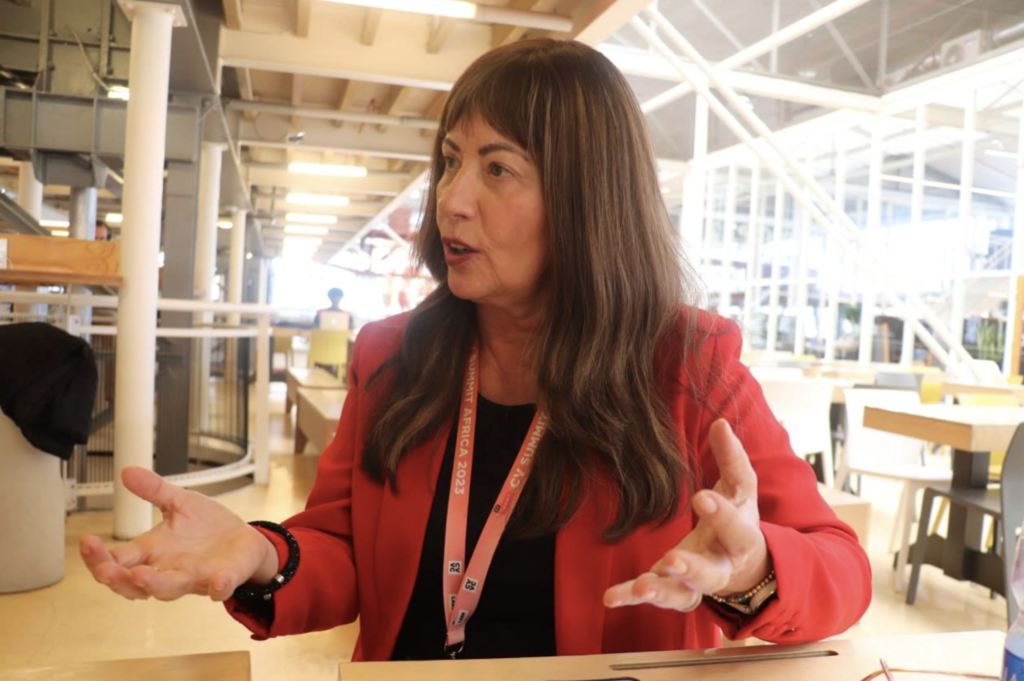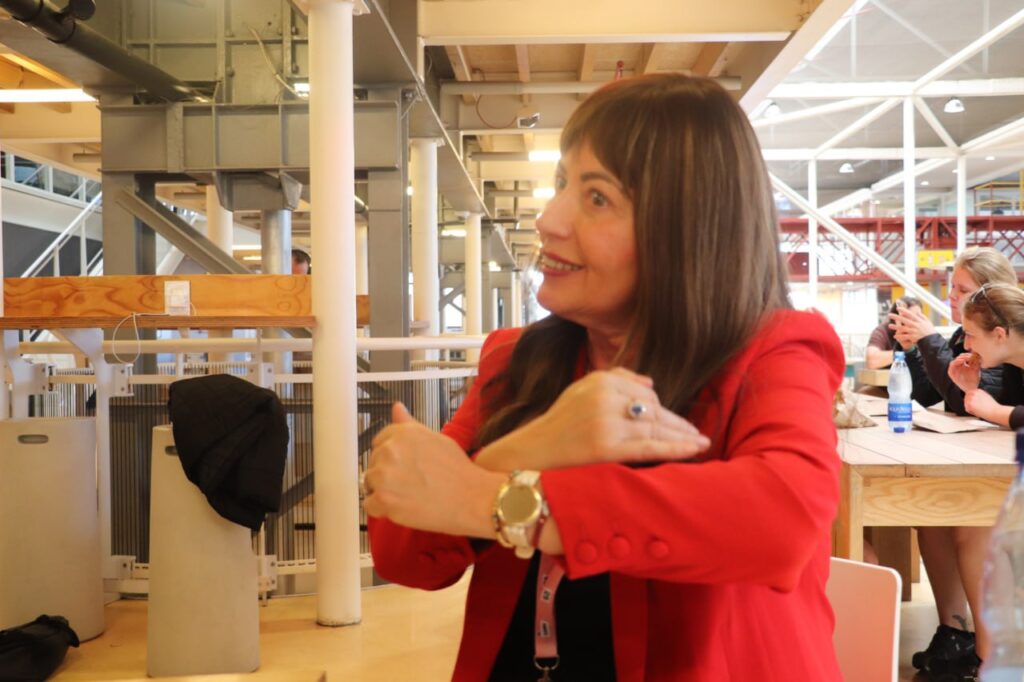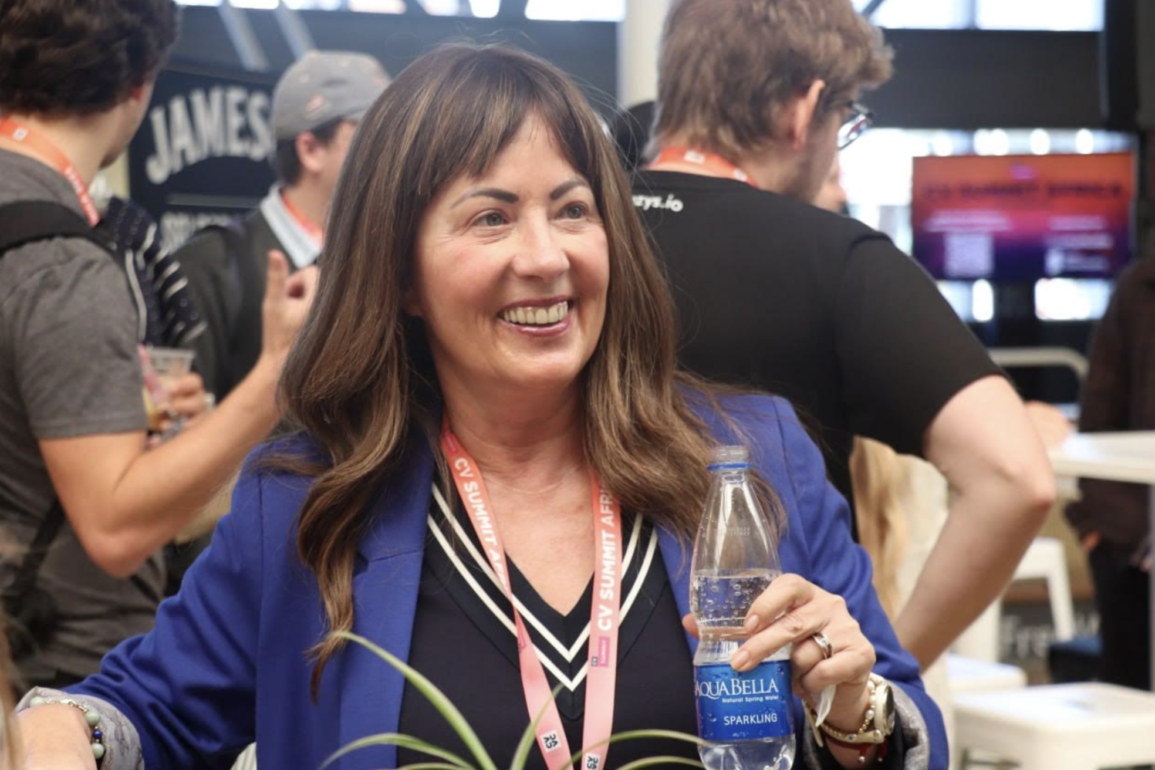It is with a heavy heart that I write this. Prof Monica Singer, the South African blockchain and Web3 pioneer, passed away on November 15 after a long fight with cancer and was laid to rest today.
I had the privilege of sitting with her in Cape Town two years ago, and that conversation remains one of the most profound encounters of my reporting career. She was a force of intellect and integrity, but above all, she was a good soul, a person whose warmth and unwavering belief in fairness stayed with everyone who met her.
Financial fraud has, for the longest part, been commonplace in all banking institutions. And audits, more often than not, collude with the perpetrators of these fraudulent dealings to conceal the misdeeds.
But Monica had her sights set on changing that. She told me then that her entire life was devoted to finding ways to reduce corruption and financial fraud. It was this passion that drove her to become a chartered accountant, believing that as an auditor she could make a real difference.
“My first job was at the South African Institute of Chartered Accountants (SAICA), where I worked for eight years. But throughout the duration that I worked there, we kept seeing companies failing and fraud still persisted and went undetected,” she said, her eyes reflecting a mixture of disappointment and resolve. “I realized that there is a concept called the ‘expectation gap’ in auditing. This is the difference between what the auditor can do and what the public thinks the auditor can do.”

Even as she represented South Africa in key global auditing committees, she realized that fraud persisted because when collusion occurred, auditors could never detect it. “Despite more standards, laws or training the auditors, and all other measures put in place the reality was that the system was, and still, is broken.”
At 35, Monica took her ambition global when she joined the World Bank, thinking she was “going to save the world.” But she soon realized that even the world’s apex bank, which gave money to governments and institutions, had little control over how funds were spent.
“My inquiry at the lack of controls and the proliferating corruption were answered with a notion that the bank was never allowed to use the term ‘corruption’. It took a long time for the bank to decide that before it took any money to governments, it had to put measures in place to ensure that the money was never stolen,” she told me. After seven months, she left the World Bank, disappointed but undeterred.
Back in South Africa, she was given the challenge of digitizing the Johannesburg Stock Exchange’s paper-based system. The country itself was at the time considered the worst emerging market because of rampant fraud.
“And so, despite my lack of knowledge in stocks, my good research skills got me to work,” she recalled. “I learnt more about the stocks, began the project in 1996 and sought to go live in 2000. But then that was the year of the Y2K millennium bug and no one wanted to implement any digital projects during that period. So it was all delayed.”
She laughed recalling the delays. “After Y2K, I was allowed to bring 10 companies into the technology and two years later the rest of the other companies. It became a success.” The systems she implemented helped South Africa later be ranked among the best financial developing markets globally, alongside Hong Kong and Singapore.
“We essentially eliminated all the fraud that was rampant in the stocks markets and that was perhaps the best feeling for me ever since I was a little girl when I held the notion that one day I would reduce corruption and fraud in the world,” she said with a quiet pride.
Even after such achievements, Monica’s mind never rested. She was always looking for the next system to fix, the next flaw to address. When Lehman Brothers collapsed in 2008, and again during Occupy Wall Street, she noticed the lack of mechanisms to protect investors, something she had worked so hard to ensure in South Africa. “Our risk management tools were so superior that they could manage the systemic risks that were taking place in other stock markets around the world,” she said.

It was only in 2016 that she discovered the promise of blockchain and crypto. After reading Satoshi Nakamoto’s Bitcoin whitepaper, she saw a technology that could make financial transactions transparent, immutable, and fair. She joined ConsenSys and took on the challenge of educating the public on Web3. “I now do education and advocacy at ConsenSys,” she said. “A lot of what people do with regard to blockchain, they do not understand. Therefore we need to do more advocacy.”
Even in her late career, Monica remained committed to the empowerment of women. She spoke passionately about the biases that keep girls from studying math, science, and programming.
“Society has been biased towards women. And it is hard for them especially in this industry since girls now hold the notion that they do not need to study sciences or math,” she told me. “But the truth is girls should learn programming, math, and languages. We need to tell them to learn these subjects, and never give them the impression that a husband will come to ‘save’ them. Not studying these subjects automatically takes girls off the markets of important professions.”
She was building a Women in Blockchain movement in Cape Town, mentoring young girls to rise, find their voice, and claim their place in tech. Her energy was contagious. Even in her stories of frustration with corrupt systems, I never felt despair—only an unshakable belief that change was possible.
Monica Singer was more than a technologist or a reformer. She was a kind soul, generous with her knowledge, unafraid to challenge the status quo, and deeply human in her interactions. She believed in fairness, in transparency, and in the goodness of people even when systems tried to prove otherwise.
As I write this, I feel the weight of her absence. But I also feel gratitude for the moments I spent with her, the lessons she imparted, and the reminder that one life, dedicated to integrity and justice, can leave an indelible mark on the world. Monica Singer may have passed, but her spirit, her vision, and her kindness will endure.




